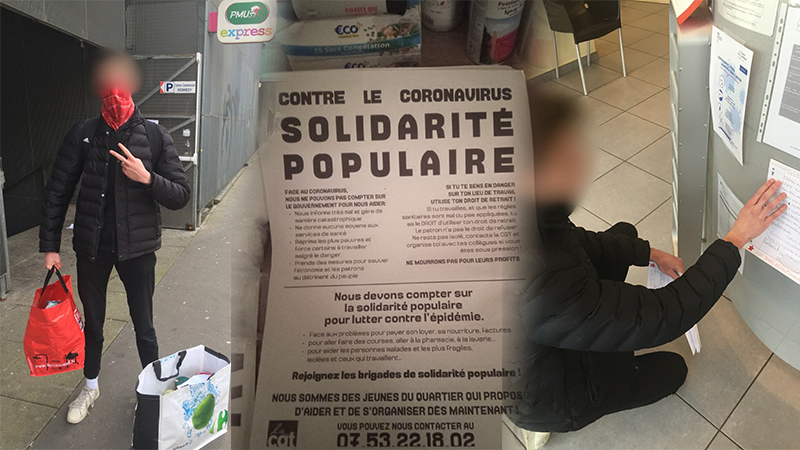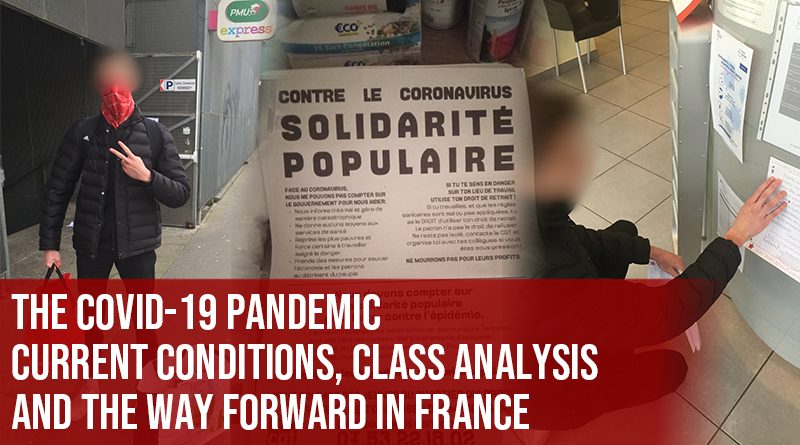The COVID-19 Pandemic: Current conditions, class analysis and the way forward in France
As the bourgeois media calls for people to either “stay home” or “go to work” according to the political agenda of their shareholders, we introduce with the following series of interviews of different revolutionary organizations in the world continuing their practice despite the COVID-19 pandemic. The different comrades we interviewed try to apply what Chairman Mao taught: to be creative in our understanding and application of Marxism even in previously unknown conditions. We hope that this and the following interviews inspire comrades throughout the world to find a path to carry forward revolutionary practice.
The following article was conducted with a spokesperson of Jeunes Révolutionnaires (Young Revolutionaries), a youth organization from the French State.
Redspark: What is the overall situation in your country right now in the context of the COVID-19 pandemic?
The State of Public Health
The situation over here is getting worse as time passes. The peak in infections and deaths is supposed to be reached around the middle of April. This is due to the government’s response to the crisis. Initially, for the entire months of January and February, the government treated the emergency as a small issue, not worthy of any measures. Some of Macron or the Minister for Health’s speeches called for French people to “continue to live” and “go out” as late as March. As for the Minister for Health, she resigned to run for election for the Mayor of Paris. When she failed, she revealed that the government had known that COVID-19 would become a national emergency early on but decided against doing anything meaningful back in January-February.
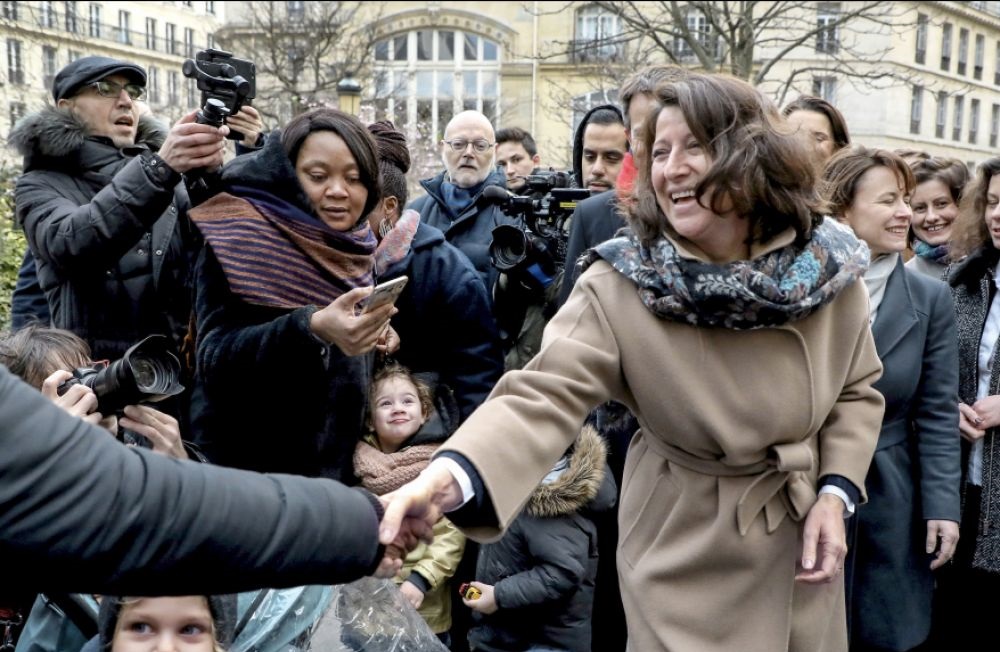
The number of serious cases in the country keeps rising and the situation in public health is worrying. As comrades who work in the field explained to us: the numbers shown in terms of deaths and infected only represent those who are lucky enough to be accepted into public hospitals. The number of people with mild cases, or even people who carry the virus without symptoms, is much higher. And for many people, especially the elderly, death can happen before being accepted in a hospital. This is a very major risk, and one comrade lost his grandfather this way a few days ago. His family was told his grandfather only had a mild disease when he had all the symptoms of COVID-19. The hospital gave him paracetamol (acetaminophen) and sent him home. He died shortly after. We join him and all the other people who have lost someone in mourning. Many people keep working (working-class jobs) and workers, especially from big stores, have been contaminated and have died from the disease, such as Alain and Aïcha and many others.
The Health Infrastructure and Treatment/testing
French hospitals have seen a protracted strike movement in the past few years, increasing in the past few months. Here health is public, but the budget has been constantly cut since the crisis of 2008-2009 and even before. French public hospitals have no money to spend on the correct tools to treat patients in “normal” times, and they run on a limited staff who are exhausted from all the work that has to be done with limited resources. Instead of expanding the workforce, the government keeps pursuing a policy of privatizing public health, favorizing private clinics that continued to operate normally as late as early March when public hospitals had to prepare themselves for COVID-19. Private clinics are ready to receive patients today, but get very few of them because of their fees.
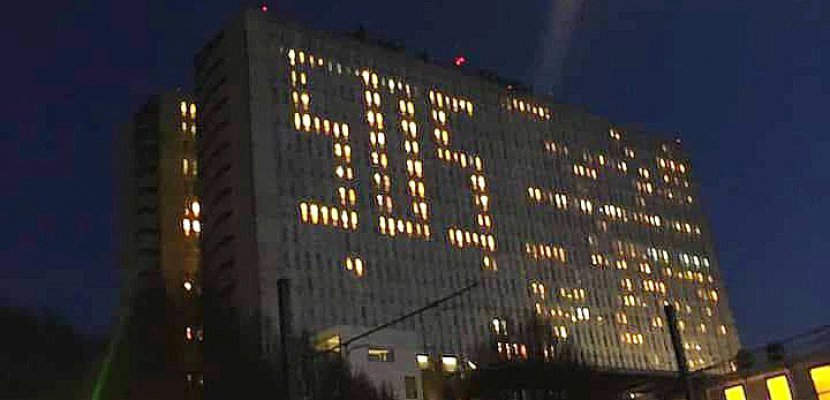
As for the tools to prevent the spread of the disease or to treat it, the country was vastly underprepared. Masks shortages are so bad that the government had to rely on foreign aid (that they originally refused and lied about) and in many industries (especially the service industry), workers now wear plastic masks and other makeshift solutions to “prevent” the spread of the disease.
Effect on the Masses
This health crisis has already had, in addition to the other aspects of the crisis (political, financial, economic) a strong impact on the masses. People who work proletarian jobs, especially those from the working class, still have to go to work under inadequate security and police scrutiny. The government has put in place police blockades in big cities and mobile units in the suburbs (where popular neighborhoods are situated) who harass passers-by, and especially young people who happen to look black or Arab. The lockdown has also contributed to an increase of violence against women, as much as 32% in the first week of the lockdown. In prisons, the suspension of visits and the possibility of mass spread of the virus have led to revolts.
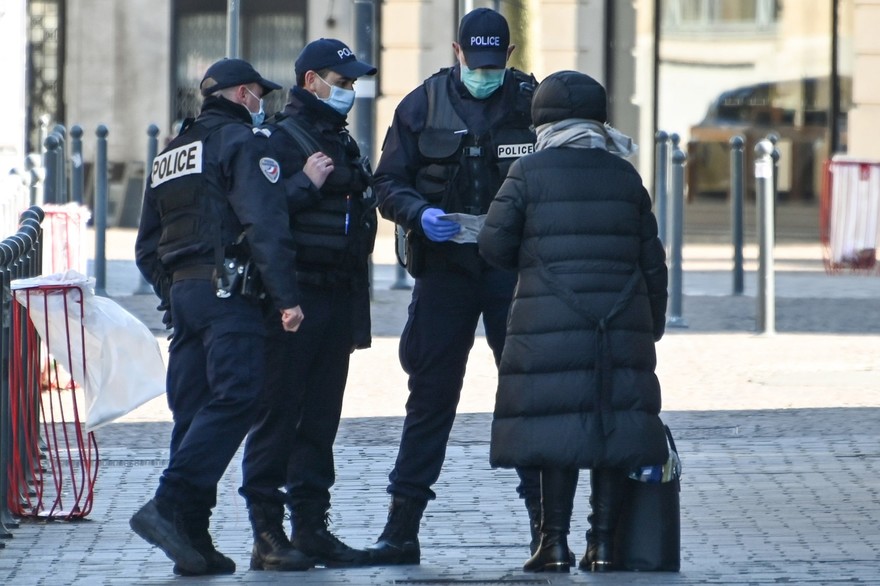
For the bourgeoisie, the situation is different. 1/5 Parisians left the city, and a lot of them relocated to their second homes in the countryside. They are almost exclusively people in management positions making an irresponsible choice leading to increased contaminations in remote parts of the country. In recent days, the government has expressed anxiety over the rise of a “class struggle” feeling in the country due to the “essential jobs” mobilizing mainly the working class and proletariat to carry the whole country on their shoulders.
Border Closures
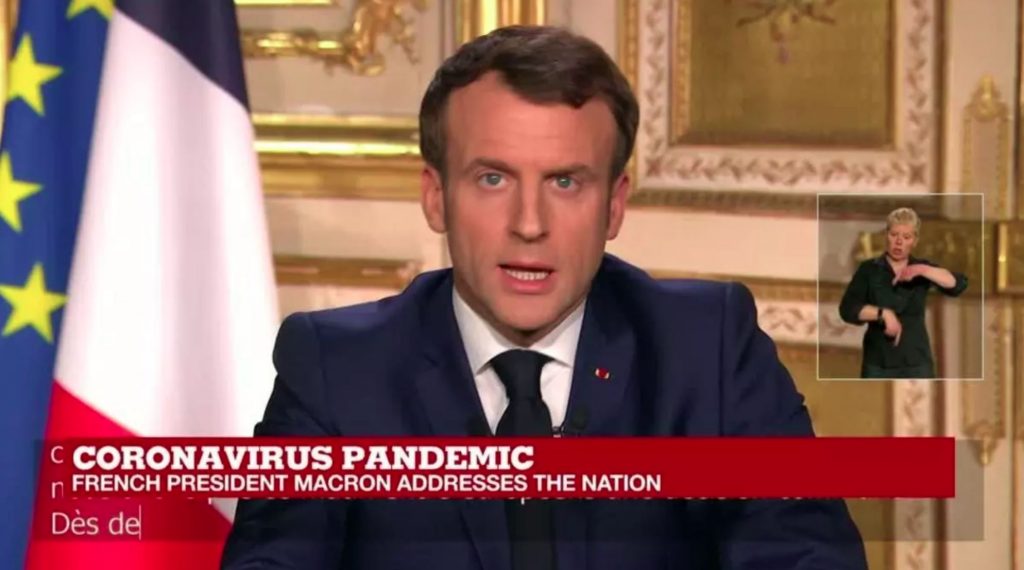
Strict measures have been put in place in the entire European Union, a situation unseen in recent years. This has led to many explosive and dangerous situations for migrants and refugees in countries such as Greece, Turkey and so on. In Hungary, not so far from France, special powers have been passed for the fascist leader Orban, supposedly to “handle the crisis” better.
Macron frames the struggle against the virus as a “war,” and so his government has taken war-like measures. For example, one prefect bragged in an official press release, to have “mobilized” refugees and migrants to take up the role of migrant workers (from eastern Europe, mainly Poland) to work in the French fields. He framed this “mobilization” as part of the “war effort”.
Redspark: In almost every country affected by COVID-19, the State is using the opportunity to consolidate power in the name of fighting the virus for national security. Do you see this happening in your country? If so: what form is it taking?
As with many other countries, the French government has passed a series of decrees aimed at “fighting the virus.” The lockdown is the main example that comes to mind, and since it was put in place, hundreds of thousands have been fined. Everybody has to fill out and carry a form justifying their presence outside. Because of this, the police have been empowered to fine, or even jail (up to six months), homeless people, people who go to the bakery instead of the supermarket, people who don’t have a printer at home and make a spelling mistake when copying the form, people who are 30 minutes later that what is written on the form…
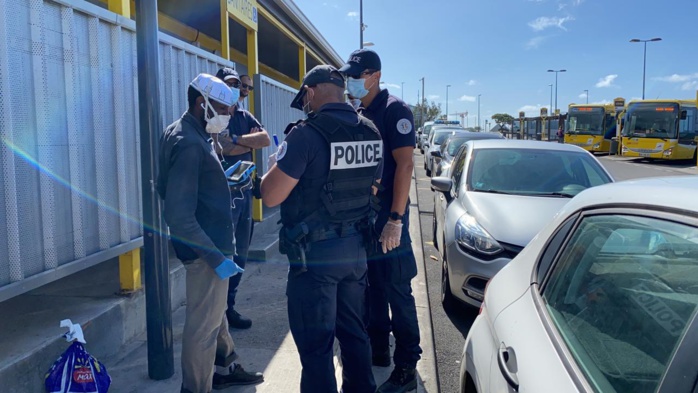
Of course, that is only the tip of the iceberg, what is visible when you go outside and what most people, especially those in cities, have experienced so far. But the actions of the government are much wider than that.
First of all, the government has announced a national “sanitary state of emergency.” What is the content of this state of emergency? Changes in paid leave, changes in the length of the work week and many others. In essence, this “temporary” decree accelerates the series of reforms started by bourgeois governments in the country many years ago. The 35 hours work week was dropped almost instantly and, in its place, the government has allowed businesses to increase the number of weekly hours from a maximum of 48 to a new maximum of 60. Hundreds of billions are already on their way to save the biggest business of the country from recession and financial and economic crisis amplified by COVID-19. These measures, far from “helping the mobilization to fight the virus,” allow the French bourgeoisie to save its profits and continue to exploit even under the current situation.
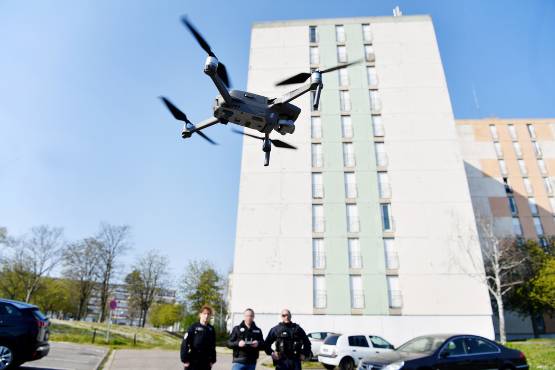
Redspark: What are the short and long-term repercussions?
Of course, these changes in the law are said to be temporary, short-term solutions under exceptional conditions.
In a bourgeois State, there is no such thing as a truly temporary state of emergency. This is exemplified clearly in the French case. Back in 2015, with ISIS attacks in January and November, the government declared a state of emergency. This resulted in an increase in body searches everywhere, in police controls, and gave exceptional powers to the French State at all levels. Nowadays, this state of emergency has been lifted, but under Macron many of the measures that had become the norm under the state of emergency have been written into law.
This new state of emergency, the so-called state of “sanitary” emergency, follows the same path. The bourgeois government is preparing its future by attacking the masses in the midst of the crisis. It has no time to wait: only one year ago, the Gilets Jaunes (Yellow Vest) movement started, and in the winter, a general strike struggling against the new retirement bill lasted several weeks.
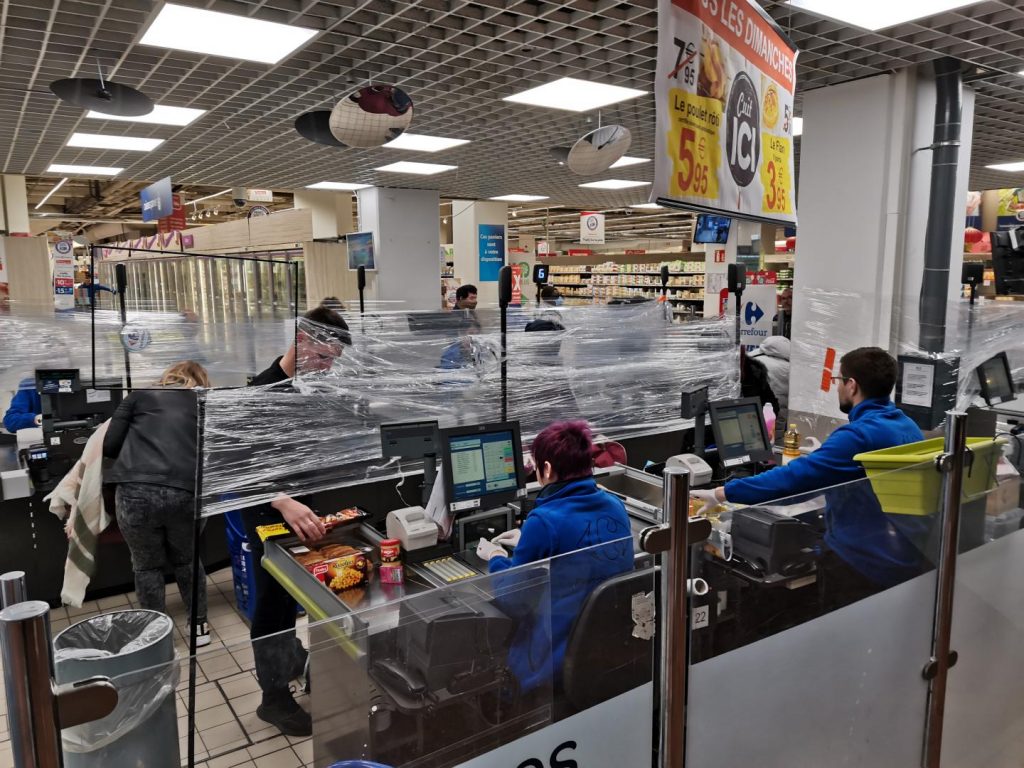
But the reforms are not the only change. The bourgeois State has to face a financial and economic crisis with worse risks than the previous ones. This crisis was not been caused by COVID-19, but the current lockdown and recession have fueled its development. Before the lockdown, the main stock market index in the country, CAC 40 (with the 40 biggest monopolies in the country) had already lost 40% of its assets in only one month. Since then, the government has revealed a bailout plan to save monopolies, and the European Central Bank has started the printing press to accommodate the market with new money. How does this crisis affect the masses? Well, many small businesses are dependent on financial capital to survive in the form of debt. With the debt crisis, how many of these companies will go under? And with them, how many people will lose their jobs? Similarly, some monopolies have already started to lay off staff in order to cut on expenditures. For the youth, this was already a major issue before the crisis with as much as 20% of unemployment among 20-24 years old workers. With the new developments, there is a major possibility that this number, as well as the general level of unemployment, will go up rapidly.
Redspark: How will this affect the work of building a revolutionary movement?
Even before this crisis, the rate at which people realized the need for a revolutionary movement structured outside the paths of movementism and spontaneity had been steadily increasing. Now more than ever, this new situation calls for such a revolutionary movement. The reforms made by the government mean that this movement will face increased repression, as shown in the recent years, and that it will have to grow in conditions where workers’ rights are being denied and attacked, and where all the crumbs left over from social-democratic policies (the so-called “welfare State”) are rapidly swept away.
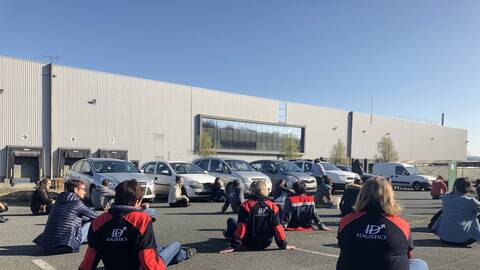
With the new conditions, this is truer than ever. Our organization, as well as others, has learned this lesson and decided to act.
Redspark: While people in most affected countries are in forced quarantine and the massive loss of employment for huge portions of the population, the objective conditions for organizing and doing mass work have changed dramatically. How has your work changed and how will it change?
First of all, many common activities such as propaganda work or usual mass work had to be halted. Work in the streets, parks, markets, workplaces, popular neighborhoods, with local collectives and struggles… cannot go on with the new situation.
Many activities, such as collective sport sessions, or preparations for the 1st of May, had to be put on hold for now.
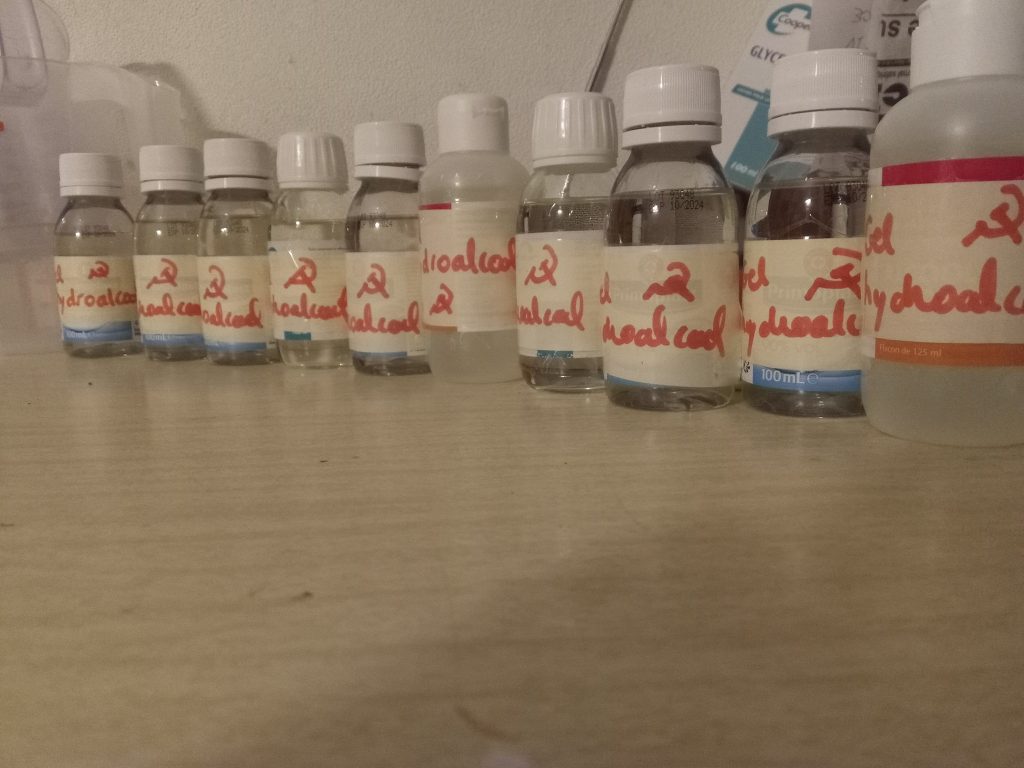
Several other collectives, such as local organizations in popular neighborhoods (for example Sartrouville in the Parisian suburbs) have started similar programs. In the same vein, an initiative called “Brigades for Popular Solidarity” emerged last week (March 26). In general, this is a good thing. We see slogans such as “serve the people!” have been taken up and becoming popular.
Redspark: What do you see as the principle revolutionary tasks in this moment?
The current tasks we have identified at the moment are the following:
- We have already talked about popular solidarity, but we will add that these programs are aimed at demonstrating the need for revolutionary organizations and the correctness of our political line. When the lockdown is lifted, what will the revisionists, reformists and social-democrats who supported the government say? What will the Trotskyites and other movementists who have done nothing except continue to display a parody of “militancy” (with online meetings and “demos”) say? What we want is to channel our propaganda in this mass work, to show that the people who went out of their way to help during time of crisis, the people who were organized and decided to act, are revolutionaries. This will also help to strengthen our own comrades and combat ineffective methods of work.
- Regarding workplaces, it is important to continue to act on this front. People who still have to go to work today are proletarian, and a good amount of them are from the heart of the proletariat, the working class. We have encouraged our comrades to give testimonies on the situation in their workplace and develop work with their colleagues.
- We also use the current situation to further develop our organization on the ideological, political and organizational fronts.
To conclude, these tasks are aimed towards continuing and intensifying our work under the new conditions. There is no doubt that with each day that passes, the forms this new type of work take will have to evolve. But in general, these are the guidelines we follow.
